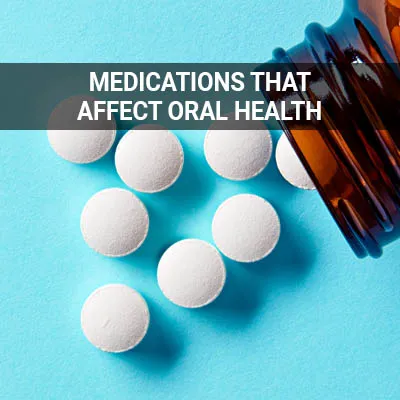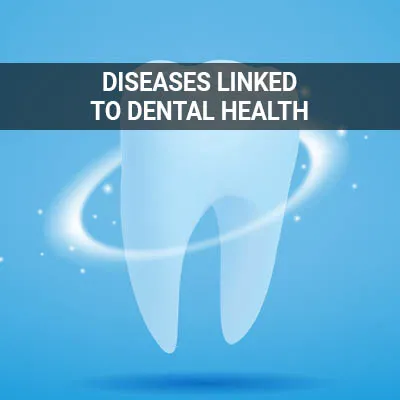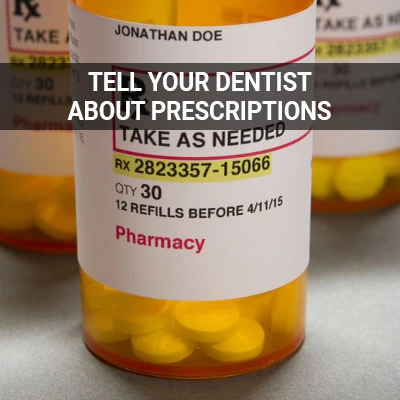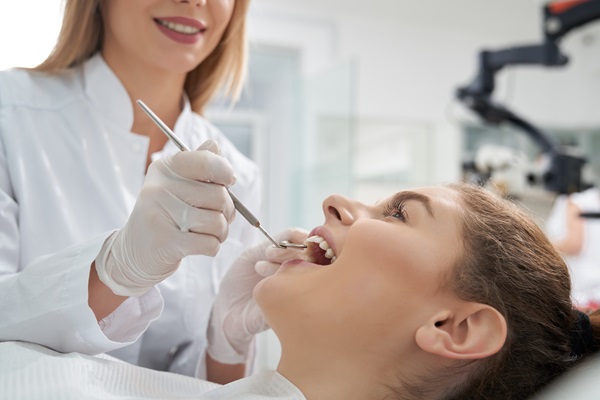Oral-Systemic Connection Miramar, FL
Many patients are unaware of the oral-systemic link, referring to the link between dental health and the body’s overall health . Routine visits with a complete health dentist may act as effective preventive care.
Total health dentistry is available at Sienna Dental in Miramar and the surrounding area. We put our patients’ safety and comfort first. Call us today at (954) 283-7085 to schedule an appointment or to learn more about our services.
Understanding the Oral-Systemic Connection
According to the Mayo Clinic, research has found that gum disease is often indicative of various systemic conditions. As a primary entryway into the digestive and respiratory tracts, the mouth is a natural breeding ground for bacteria. While most of these bacteria are harmless, poor oral hygiene practices may enable them to multiply at dangerously high levels — putting the mouth at risk for various oral infections. Once inflammation enters the bloodstream, the body’s immune system will be at heightened risk for other systemic conditions.
Traditional dentists tend to treat isolated conditions rather than considering patients in their entirety. Additionally, most patients typically see dentists on an "as-needed" basis. In reality, they should make consistent visits to reap all the benefits of a complete health dentistry program. A total health dentist will go over a patient’s medical history to give them the most comprehensive treatment plan. In addition to screening for oral cancer, total health dentists can identify warning signs of other oral health issues and systemic conditions.
“According to the Mayo Clinic, research has found that gum disease is often indicative of other systemic conditions.”
Oral Health and Heart Disease
Though research on the relationship between the two is still ongoing, existing evidence makes it evident that oral health and heart disease are positively correlated. For instance, poor dental hygiene can increase a patient’s risk of developing a bacterial infection in the bloodstream, affecting the heart valves. As such, patients with artificial heart valves may particularly benefit from regular visits with a total health dentist.
Furthermore, patients have a two to three times higher risk of having a heart attack, stroke, or another serious cardiovascular event if they have periodontitis. Heart conditions such as atherosclerosis, dyslipidemia, and hypertension link to periodontal microorganisms. Additionally, there is a positive correlative relationship between tooth loss patterns and coronary artery disease.
“Though research on the relationship between the two is still ongoing, existing evidence makes it evident that oral health and heart disease are positively correlated in some way.”
The Effects of Chronic Oral Inflammation
The idea of the oral-systemic link is nothing new. According to the American Dental Association (ADA), it has been around since at least the late 19th century. However, it has not been until the last several decades that experts have found proven associations between oral health and systemic diseases (specifically cardiovascular diseases and diabetes). There are two possible reasons for this:
- Chronic inflammation in the oral cavity increases inflammatory markers’ levels in the bloodstream, negatively affecting the immune system.
- The oral cavity collects disease-causing bacteria that can enter the bloodstream.
As such, any failure to prevent or control periodontal diseases can increase the risk of adverse health outcomes. Invasive dental procedures can also increase the risk of stroke and myocardial infarctions. However, dental care may also have a positive impact on overall health: Treating periodontal diseases can effectively treat type 2 diabetes. Enhanced oral hygiene may prevent respiratory infections and death from pneumonia in elderly patients. In any case, dental care must be carried out with patients’ total health in mind.
“Chronic inflammation in the oral cavity increases levels of inflammatory markers in the bloodstream, negatively affecting the immune system.”
Check out what others are saying about our dental services on Yelp: Oral-Systemic Connection in Miramar, FL
Oral Health and Nutrition
Oral health and diet affect each other directly. What a patient eats will naturally influence the health of the tissues in the mouth, while the health of the mouth will affect the patient’s ability to eat. Additionally, excessive sugar consumption can increase the risk of developing cavities. Frequent consumption of acidic foods and beverages can also increase the risk of erosive tooth wear.
Thus, good oral health is dependent on proper nutrition and healthy eating habits. Patients should avoid natural and added sugars, along with processed starches and low pH-level acids. Eating a nutritious, well-balanced diet and limiting the consumption of between-meal snacks can benefit both a patient’s overall and oral health.
“What a patient eats will naturally influence the health of the tissues in the mouth, while the health of the mouth will affect the patient’s ability to eat.”
Questions Answered on This Page
Q. How does oral health affect overall health?
Q. How does oral health affect heart health?
Q. What are the effects of chronic oral inflammation on the rest of the body?
Q. How does diet affect overall health?
Q. What systemic conditions are linked to oral health?
People Also Ask
Q. What is OralDNA diagnostic testing?
Systemic Conditions Linked to Oral Health
Oral health is linked to a variety of systemic health conditions aside from heart disease. Some of the most prominent include diabetes, pneumonia, rheumatoid arthritis, and Sjorgen’s syndrome. As certain conditions may sometimes necessitate changes to oral health treatment, patients should be as forthcoming as possible about their medical history.
For example, diabetes and oral health have a bidirectional relationship — meaning treating one can treat the other. At the same time, diabetes reduces the body’s ability to resist infection, thus increasing the patient’s risk for gum disease. Research also suggests that poor oral hygiene increases elderly patients’ risk of developing pneumonia. Additionally, rheumatoid arthritis and periodontal disease are both linked to severe inflammation. Patients may become more susceptible to Sjogren’s syndrome as a result.
“As certain conditions may sometimes necessitate changes to oral health treatment, patients should be as forthcoming as possible about their medical history.”
Frequently Asked Questions
Q. Am I at risk for developing periodontal disease?
A. The most common cause of periodontal diseases is poor oral hygiene. However, some patients may be more at risk than others. This includes patients who use tobacco, drink alcohol, use certain medications, have a poor diet, clench or grind their teeth, or have preexisting conditions. We can develop a customized treatment plan for your needs.
Q. Is oral health connected to pregnancy?
A. Yes. Pregnant women have a significantly higher risk of developing periodontal disease and cavities. Changes in behavior, hormone levels, and diet may all contribute. Additionally, if left untreated, specific dental health issues may lead to pregnancy complications.
Q. What are the signs of periodontal disease?
A. Periodontal disease is often silent, meaning that patients often do not experience symptoms until the condition has already progressed. Some patients never feel any symptoms at all — making it all the more important for patients to make regular visits to the periodontist. Common signs of periodontal disease, however, involve changes in bite, deep pockets between the teeth and gums, gums that bleed during and after brushing teeth, loose or shifting teeth, persistent bad teeth or taste in the mouth, receding gums, and red, swollen, or tender gums.
Q. What makes a total health dentist different from a regular dentist?
A. Conventional dentists tend to focus more on treating isolated conditions. They often fail to take other aspects of a patient’s health into account, which may lead them to overlook warning signs or symptoms of other systemic conditions. Total health dentists look at the patient first.
Q. How will a total health dentist work with me?
A. In contrast to conventional dentistry, patients of total health dentists will need to become active participants in their at-home care. We will work with you to set realistic goals and work toward a healthy mouth baseline together.
Dental Terminology
Call Us Today
A healthier life begins with a healthier mouth. We at Sienna Dental may be able to help. Call us today at 954-283-7085 to schedule an appointment or to learn more about our services.
Helpful Related Links
- American Dental Association (ADA). Glossary of Dental Clinical Terms. 2023
About our business, license, and website security
- Sienna Dental was established in 2018.
- We accept the following payment methods: American Express, Cash, Check, Discover, MasterCard, and Visa
- We serve patients from the following counties: Broward County
- We serve patients from the following cities: Miramar, Pembroke Pines, West Park, Hollywood, Hallandale Beach, and Miami Gardens
- FL (License #DN20725). View License Information and Specifics
- National Provider Identifier Database (1154660033). View NPI Registry Information
- Healthgrades. View Background Information and Reviews
- Norton Safe Web. View Details
- Trend Micro Site Safety Center. View Details
Back to top of Oral-Systemic Connection










